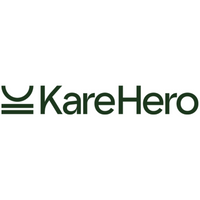How an equitable approach to health and wellbeing can support working carers
With an ageing population in the UK, elderly caregiving is becoming increasingly common for working adults.
Today in the UK, 10.6 million people are deemed to be carers - whether a carer for their young children, their elderly parents or relatives or even a neighbour.
There are more people in the workplace today looking after someone over 65 than someone under 15, and yet almost every company has benefits in place to help parents with earlier childcare, support for mothers and support for menopause.
Each year:
- about 2.1 million people become new caregivers
- £8.2bn is lost in productivity from people who leave the workforce or go part-time because of caring needs
- 600 people quit every day due to caregiver burnout, and a lot of them go part time
- women are 4x more likely to go part-time or quit their job as soon as they become a caregiver for an adult in their family
- 2.6 million people are financially worse off, some have quit or some have gone part-time.
Companies need to prioritise the creation of support policies and benefits to enable carers to thrive in work, while managing the care of elderly loved ones.
What can employers do to help carers?
In the past there has been a stigma surrounding the realities of being an adult carer.
The 23 November is Carers Rights Day - a special day which is seeing more and more companies beginning to celebrate and talk about what it means to be an adult carer. Celebrating Carers Rights Day is something all companies can get involved with, to give visibility to carers and offer support.
In 2023, the Government enacted two new laws, the Carers Leave Act and the Flexible Working Act, which means by Q1 of 2024, every single employer has to formally understand who is a carer in their workplace, both for childcare and adult care.
Now carers have rights and employers have to make sure those rights are protected. At a minimum, employers will now need to let employees take a week of unpaid leave on top of their annual leave - however, a lot of employers have implemented it as paid leave.
Here are a few things employers can do to further support working carers:
1) Get to know your carers in the workplace
Get to know how many carers are in your organisation. Although this may sound easy, a lot of carers don’t realise they are carers at all - with many thinking they are ‘just being a good daughter/son/partner.’
Phoenix Group implemented a ‘carers passport,’ which means that as soon as an employee joins a company, they are run through a series of scenarios to help identify whether they are a carer. This information will be available to managers so that they know upfront an employee is a carer, and there may be hurdles or challenges you might face because of this.
2) Focus on retaining your existing talent in the workforce
There are fewer and fewer younger people coming into the workforce each year because of dwindling birth rates, meaning employers are fighting for fresh university talent - and likely putting a lot of marketing spend into attracting said talent.
In reality, the bulk of the workforce over the next couple of decades will be employees aged between 40 and 55 - these are the people coming into carer’s needs, and they want to know employers care.
In 2022, the Phoenix Group did a study where they interviewed 6000 employees, and 30% said they would choose an employer who recognised adult care needs versus one who doesn't because they know that's the reality they have to deal with.
3) Help employees with real & practical solutions
Engage with solutions that offer practical support to employees who need help. For example, KareHero helps employees through the entire lifetime of their caregiving journey through its Care Concierge solution.
Supporting carers in your workforce is good for business. If you can retain your talent, you can also improve your DEI. 60% of carers are women, and there is real pressure on women trying to stay in the workforce while undertaking caring duties outside of work.
Employers need to create inclusive working environments to enable not only carers, but all groups within their organisation to thrive in a world where work-life balance and emotional intelligence is more important than ever before.
KareHero’s Care Concierge solution
Through KareHero’s Care Concierge solution, employees can call a dedicated care expert to receive support for them and their family, including:
- providing support through hospital admissions and discharge events
- reviewing and accessing care-funding
- creating a comprehensive care plan
- carrying out a full care search for care homes and care at home
- accessing discounts to respite and care home fees.
Supplied by REBA Associate Member, KareHero
The #1 adult caregiving support service. Helping employees understand, find and fund their care journey.








